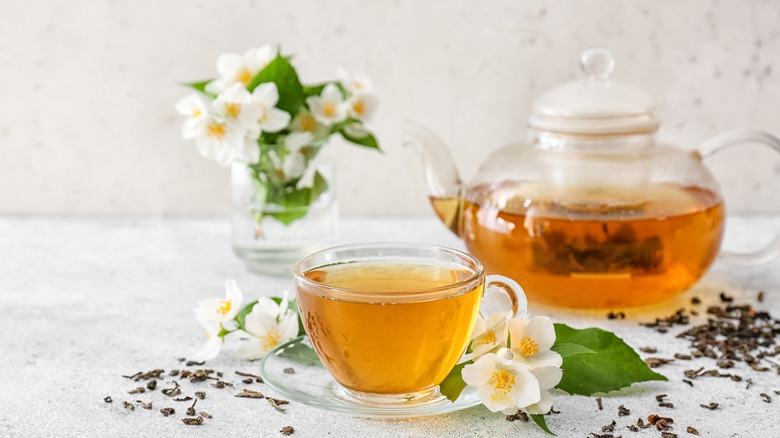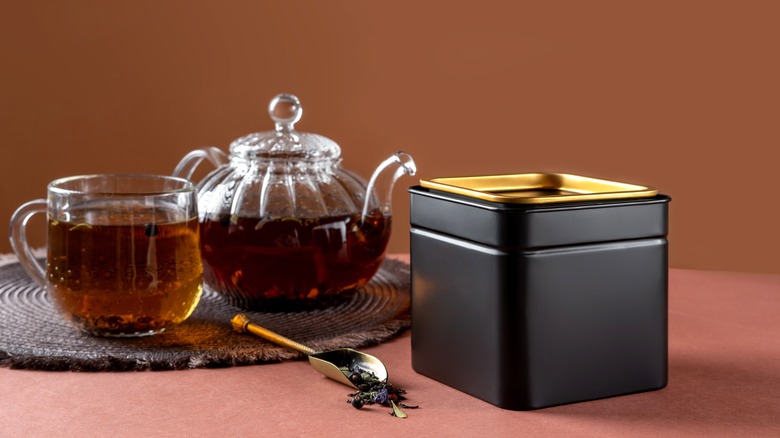Why Tea Leaves Shouldn't Be Stored In The Fridge
In the 1990s, archaeologists excavated the tomb of Emperor Jing Di, who ruled during China's Han Dynasty until his death in 141 B.C., according to the Independent. But It wasn't until 2016 that technological developments allowed scientists to identify some of the organic matter found in the tomb, and it turns out the Emperor was a fan of tea; 2,150-year-old tea buds were recovered from the tomb, making the discovery the oldest tea in the world.
You probably wouldn't want to brew a cup of that tea, though. Tea Epicure explains that tea, particularly varieties that aren't oxidized as they're processed, like white, green, and yellow teas, are fragile and begin to deteriorate as soon as the leaves are plucked. While tea doesn't actually go bad, in the sense of being harmful to consume, it does lose freshness, flavor, complexity, sweetness, and even antioxidants as it ages (via Verdant Tea). So tea needs to be stored carefully. You're surely wondering: Since the refrigerator keeps other foods fresh, why not tea leaves?
Tea leaves soak up moisture and odors
According to Tea Epicure, tea is hygroscopic, which means that moisture in the air can be absorbed by tea leaves. Because it's contact with water that causes tea leaves to release their aromas and flavors, it's important to keep the leaves dry until you're ready to brew them. Eco Cha points out that refrigerators are too humid for keeping tea fresh. Though they're cool and dark — conditions great for tea — the humidity makes them less than ideal for tea storage.
According to Valley Brook Tea, another reason to keep your tea out of the refrigerator is that tea can absorb flavors and smells from other foods. Since fridges contain everything from onions to (often uncovered) leftover pizza, storing tea in the refrigerator could end up altering the delicate flavor of your tea leaves. Whether you're storing Da Hong Pao tea, which runs about $1,400 per gram, or your favorite Earl Grey, the best way to store tea leaves is in an airtight container, away from heat, moisture, and light (per Eco Cha).

